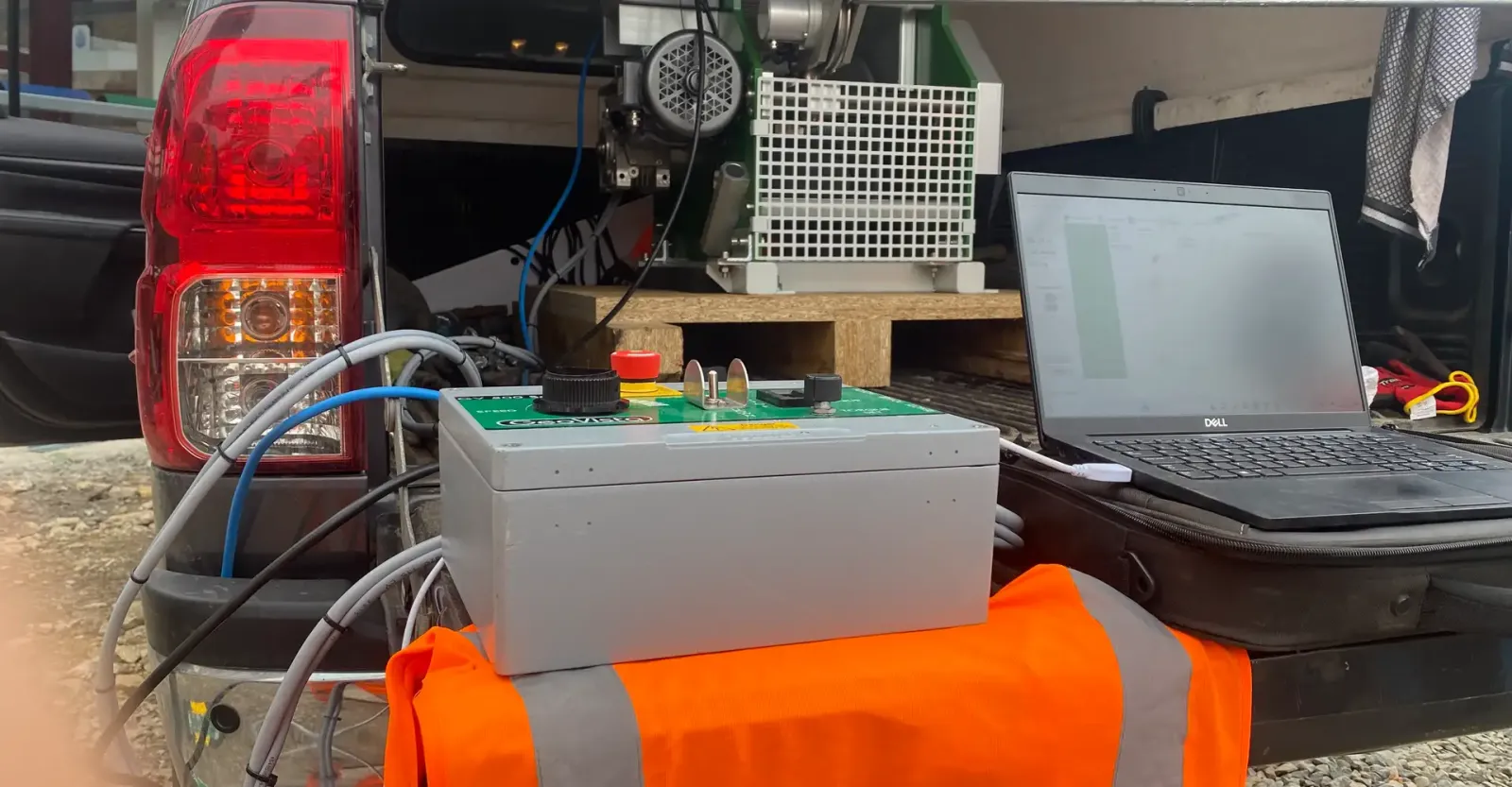
Monitoring Boreholes
Borehole monitoring is the process of collecting data on groundwater levels and quality over time.
About
Borehole monitoring is important for a number of reasons, including:
- Water resource management: Borehole monitoring can help to ensure that groundwater resources are being used sustainably.
- Contamination detection: Borehole monitoring can help to detect contamination of groundwater resources.
- Research: Borehole monitoring can be used to collect data on groundwater flow and transport, which can be used for research purposes.

Services
Igne offers a comprehensive range of borehole monitoring services, including:
- Groundwater level monitoring: We can install and maintain water level sensors in boreholes to monitor groundwater levels over time.
- Groundwater quality monitoring: We can collect and analyse groundwater samples to test for a variety of contaminants, including bacteria, metals, and chemicals.
- Data analysis and reporting: We can analyse and report on borehole monitoring data to help our customers understand the condition of their groundwater resources and identify any potential problems.
Help
Monitoring your borehole can help with:
- Early detection of contamination: Borehole monitoring can help to detect contamination of groundwater resources at an early stage. This allows for prompt action to be taken to prevent the contamination from spreading and impacting human health and the environment and…
- Compliance with regulations: Many government regulations require borehole monitoring for certain types of activities, such as mining and landfill operations. Borehole monitoring can help to ensure that these activities are being conducted in a way that protects groundwater resources.
Methods
Igne uses the following methods to monitor your boreholes:
Caliper Sonde:
- Lowered down the borehole using awinch
- Caliper arms extend to run along the borehole wall
- Measures diameter of borehole
- Can be used to calculate borehole volumes
Temperature & conductivity sonde:
- Measures temperature of the water
- Accurate to 0.4°C
- Maximum temperature of 80°C
- Measures conductivity of the water – the measurement of how easily groundwater can move through a permeable layer of rock or soil
Natural gamma tool:
- Measures the naturally occurring gamma radiation found in rocks and sediment
- Estimate bed boundaries
- Stratagraphic correlations
- Quantitative evaluation of shaliness
- Volume and cement calculations
- Lithology identification
- Identifies mineral deposits of potash, uranium, and coal
Impeller flowmeter:
- Used to determine vertical fluid velocity within a borehole and identify areas of inflow or outflow
- The tool is run at a constant logging speed up and down the borehole
- Data is corrected for logging speed
- Using the fluid velocity data and the caliper data – the flow rate can be calculated
Dual focused resistivity:
- Characterises the rock or sediment by measuring the electrical resisitivity
Lithology and correlation - Aquifer thickness and water quality
- Correlation and source rock identification
- Fracture and formation identification
- Indication of permeable zones and porosity
- Formation water salinity and hydrocarbon saturation
Inclinometer sonde:
- Measures borehole deviation
- Confirms drilling works through surveying
- Accurate to 0.5 degrees
Discrete fluid sampler:
- Fluid and Gas Sampler probes are used to take a discrete sample of well fluid at a particular depth and to return it uncontaminated to the surface.
- Capable of retrieving both gas and liquid samples at downhole pressure conditions
- Suitable for sampling dissolved trace gasses and includes a downhole circulating micro-pump to avoid sample contamination
- Takes samples at a required depth – up tp 600m
- 1L volume
For more information regarding any of our water well solutions, contact Igne today
Email: hello@igne.comCall: 0371 789 1000

